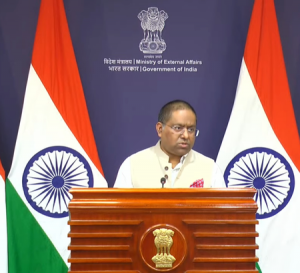He began with texts, then used tech to dominate my actions.
Technology is being used by abusers to manipulate and harm their victims in modern society.

Technology has become an integral part of our lives, but it has also opened up new ways for abusers to exert control and inflict harm. This is the story of Ariah, a 32-year-old woman who met Tom at work in London. From the very beginning, Tom showered her with attention and love, constantly seeking ways for them to spend time together and expressing his strong feelings for her.
Ariah was swept off her feet and within a few months, they had moved in together. But soon, the messages from Tom became incessant and controlling. He would send dozens of texts a day, always positive and loving, but also questioning her every move and not wanting her to wear certain clothes or look attractive when with others.
Ariah's abuse began with lovebombing and quickly escalated to controlling behavior. When Tom needed money, Ariah took out a large loan for him, which became a financial tie that made it difficult for her to leave the relationship. Tom's messages became even more frequent, sometimes calling her multiple times in a span of five minutes and sending hundreds of texts a day.
Whether they were declarations of love or scolding her for not meeting his expectations, the constant barrage of contact wore Ariah down. Her story is not unique. Technology-linked domestic abuse is becoming increasingly common in the UK, with thousands of cases reported every year.
In 2024, Metro launched a year-long campaign called This Is Not Right to raise awareness about the epidemic of violence against women. With the help of partners like Women's Aid, the campaign aims to empower and engage readers on the issue of violence against women. Ariah's abuser used technology to suffocate her and fuel her paranoia.
He constantly monitored her every move, making her feel isolated and crushed. This was made worse during the pandemic when she was under his control during lockdown. Even after she left him and moved in with her father, he continued to harass her through withheld calls and messages, using their daughter as an excuse to keep tabs on her.
Despite involving the police, the abuse did not stop. Tom would even use his own parents to contact Ariah, making it impossible for her to escape his control. She constantly worries about gifts he gives their daughter, fearing they may contain tracking devices.
It has been eight years since she met Tom, and she is still traumatized and constantly looking over her shoulder. Ariah is now receiving support from Refuge, but it may take a long time for her to feel safe again. She admits that if it wasn't for her daughter, she may not have been able to endure the abuse for so long.
Technology may have opened up new ways for abusers to control and harm their victims, but it is also being used to raise awareness and support survivors like Ariah. As technology becomes an integral part of our everyday lives, it has also become a powerful tool for abusers to manipulate and control their victims. This is a reality that Ariah knows all too well.
She first met Tom at work in London and was quickly swept off her feet by his charming ways. He made sure they spent a lot of time together and constantly expressed his strong feelings for her. It wasn't long before they moved in together, but even at this early stage, Tom's behavior started to become concerning.
Despite the constant bombardment of lovey-dovey messages from Tom, things quickly turned unhealthy. He would constantly message her, even when she was with friends, and would get upset if she didn't respond right away. He also started controlling what she wore and would become angry if she tried to look attractive around other people.
Things escalated when Tom needed money and Ariah took out a large loan for him, tying her financially to him and making it harder for her to leave the relationship. Tom's behavior became even more incessant and controlling, with Ariah receiving dozens of phone calls and hundreds of text messages a day. Sometimes they were expressions of love, other times they were scolding her for not meeting his expectations.
This constant barrage of contact was suffocating and made Ariah feel anxious and overwhelmed. She dreaded going out with friends because she knew the messages would only increase. Ariah's story is unfortunately not unique, as technology-enabled domestic abuse is on the rise in the UK.
In fact, between August 2022 and July 2023, there were over 48,000 cases of violent domestic abuse with an online element. This form of abuse, which includes things like cyberstalking and online harassment, has become even more prevalent with the advancements in technology and the isolation brought on by the Covid pandemic. For Ariah, the abuse didn't stop even after she left Tom.
He continued to harass her through withheld numbers and even used their daughter as an excuse to keep tabs on her. When she finally reported his behavior to the police, he found new ways to contact her, including using his own parents. This constant surveillance and control have left Ariah feeling traumatized and constantly looking over her shoulder.
Even now, as she receives support from organizations like Refuge, Ariah knows that it will be a long time before she feels truly safe. She is constantly monitoring gifts from Tom for tracking devices and is always on edge, worried about what he might do next. But despite the ongoing effects of her abuse, Ariah is determined to keep going for the sake of her daughter.
Her story is just one of many, and it's important to shed light on the widespread issue of violence against women. That's why Metro has launched the This Is Not Right campaign, in partnership with Women's Aid, to raise awareness and empower readers to take action against this epidemic.










